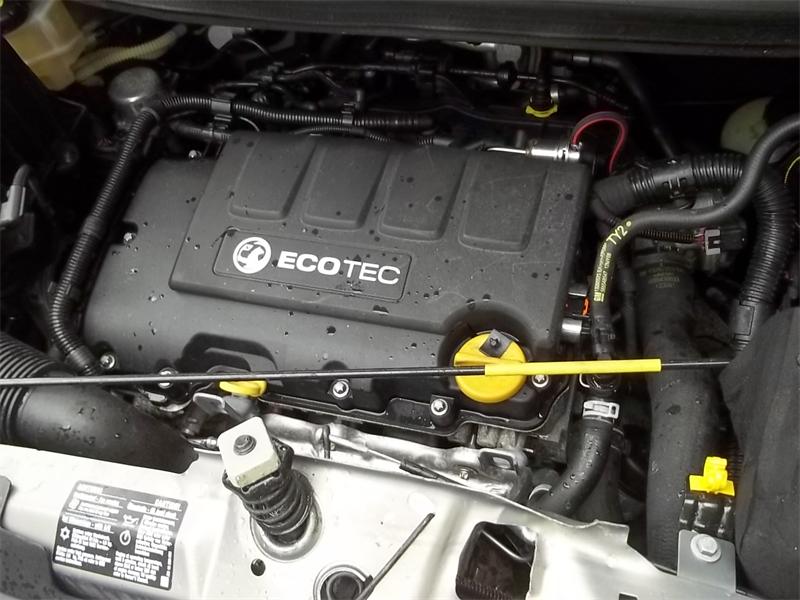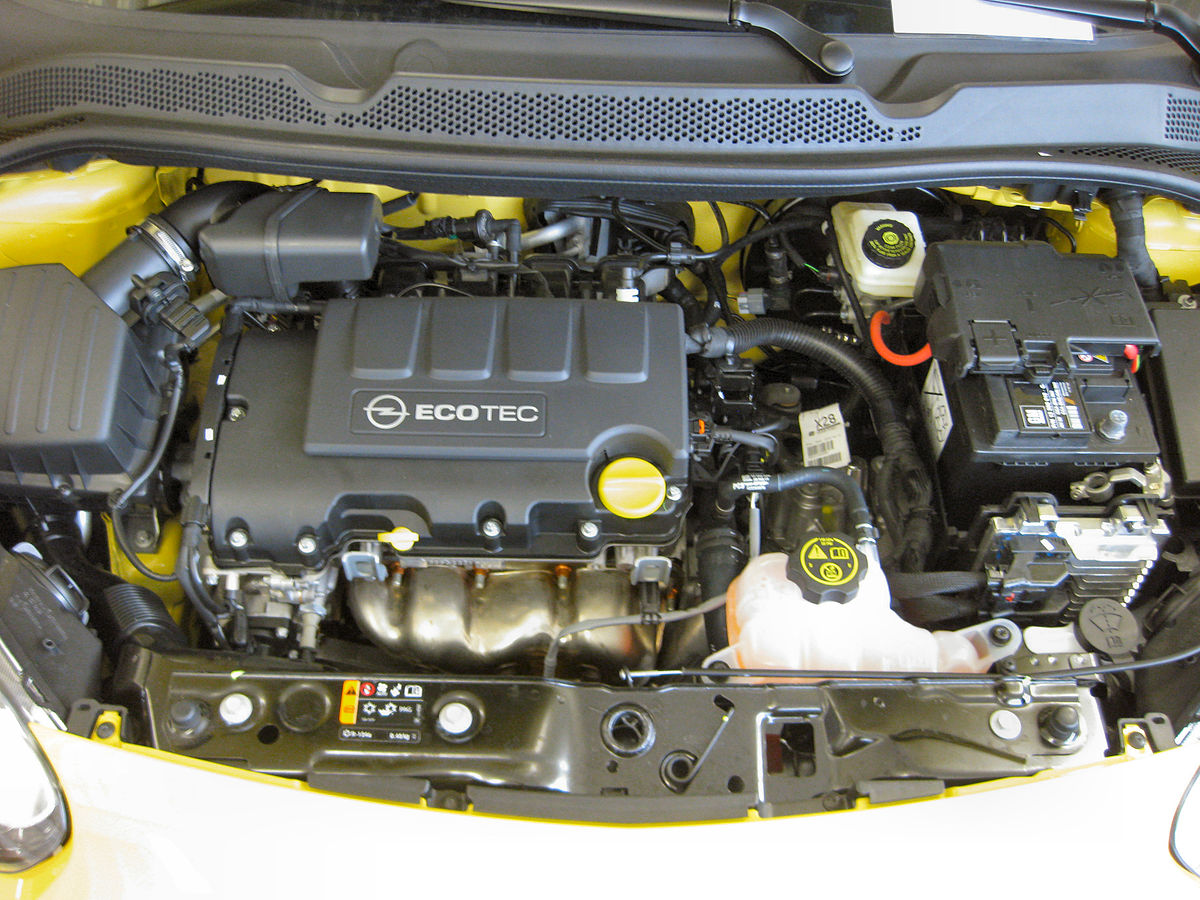Smart Purchaser's Checklist: Key Features to Assess in Engines Prior To Making an Acquisition
When thinking about acquiring an engine, there are several vital features that a critical customer must examine to ensure they are making a well-informed decision - Opel Corsa 1.4 Engine Price. From the type of engine to its performance metrics, gas maintenance, resilience, and effectiveness costs, each element plays a crucial duty in establishing the engine's viability for the intended purpose. By thoroughly examining these elements, buyers can buy that not just fulfills their existing demands but additionally confirms to be a sensible long-term financial investment
Engine Kind Evaluation

For applications requiring high power result, such as durable commercial machinery or huge lorries, diesel motor are frequently preferred due to their effectiveness and torque capacities. On the other hand, gasoline engines are typically picked for smaller equipment, automobiles, and power devices where lighter weight and greater RPM performance are helpful.
Additionally, the atmosphere in which the engine will run must be thought about. Factors such as air, temperature level, and altitude quality can influence the engine's performance and long life. Picking an engine type that appropriates for the specific operating conditions will certainly help ensure optimal efficiency and resilience.
Performance Metrics Analysis
Reviewing efficiency metrics is essential in identifying the efficiency and performance of an engine for its designated application. One vital statistics to think about is the power result, typically determined in horsepower (HP) or kilowatts (kW), which suggests the engine's capacity to do job. Torque is an additional necessary metric as it represents the rotational force generated by the engine, affecting its ability to conquer resistance and speed up. Fuel efficiency is an important performance metric, highlighting just how effectively the engine converts gas into usable power. Additionally, examining discharges levels, such as carbon dioxide (CO2) and nitrogen oxides (NOx), is important for ensuring ecological compliance and lessening the engine's ecological influence. Thermal performance, a procedure of exactly how well the engine converts warmth from fuel combustion into mechanical work, is additionally fundamental in examining overall performance. By thoroughly evaluating these performance metrics, buyers can make enlightened choices when picking an engine that aligns with their particular requirements and objectives.
Fuel Performance Evaluation
Evaluating gas performance is a crucial aspect in figuring out the functional cost-effectiveness and environmental influence of an engine. Fuel performance describes the amount of energy an engine can draw out from a particular amount of gas. It directly affects the general business expenses of the engine, making it a critical factor to consider for customers aiming to enhance their long-term prices.
When assessing fuel performance, it is vital to consider metrics such as miles per gallon (MPG) or litres per 100 kilometers (L/100km) depending upon the region. These metrics supply a clear indicator of exactly how much a car can travel on a system of gas, enabling buyers to estimate gas costs accurately. Additionally, modern technologies like crossbreed systems, turbocharging, and straight gas shot can significantly influence gas effectiveness by enhancing combustion efficiency and reducing power losses.
Inevitably, next picking an engine with high fuel effectiveness not only reduces operational expenses yet additionally minimizes carbon discharges, making it an eco conscious selection. By prioritizing gas performance during the buying process, buyers can make informed choices that align with their environmental and economic goals.
Toughness and Dependability Check

Taking into consideration the substantial impact of gas effectiveness on functional costs and environmental sustainability, the following crucial facet to review in engine acquisition is the resilience and dependability of the engine. Longevity describes the engine's capacity to endure wear, rust, and stress over an extensive period, ensuring a longer life-span. Reliability, on the other hand, relates to the engine's consistency in efficiency under numerous conditions without unanticipated breakdowns or failures.
To evaluate the sturdiness and integrity of an engine, numerous variables need consideration. Analyzing the engine's building and construction materials and layout can provide understanding right into its robustness and resistance to wear. see here Additionally, assessing historical data on the engine design's performance, upkeep demands, and common concerns reported by individuals can assist gauge its reliability.
Moreover, certifications from credible organizations, warranty offerings, and maker online reputation for creating dependable engines are beneficial indicators of longevity and dependability. Performing thorough study, seeking referrals, and checking maintenance documents can assist in making an educated decision on buying an engine recognized for its longevity and reliable efficiency.
Cost and Upkeep Factors To Consider
When considering engine purchase decisions, a vital aspect to look into is the financial effects paired with maintenance factors to consider. The price of an engine expands past the first acquisition cost. It is crucial to analyze variables such as gas performance, ongoing maintenance costs, and the availability of spare parts. Deciding for a fuel-efficient engine may result in long-lasting cost savings in spite of a possibly greater upfront cost. Additionally, examining the maintenance demands of different engine designs is vital. Some engines might require regular maintenance or specialized treatment, leading to increased maintenance expenses gradually. Thinking about the availability and cost of spare parts is also critical. Engines with conveniently accessible and moderately valued spare components can dramatically minimize upkeep expenses and downtime. Focusing on cost-effectiveness and simplicity of upkeep can cause a much more lasting and affordable engine investment in the future.
Final Thought
Finally, it is necessary for customers to extensively review essential functions in engines before making a purchase. By thinking about the engine type, performance metrics, fuel efficiency, sturdiness, upkeep, dependability, and price find out this here needs, buyers can make an informed choice that fulfills their assumptions and needs. This comprehensive assessment process makes certain that buyers pick an engine that will certainly supply optimum performance and longevity for their planned use.
From the kind of engine to its performance metrics, gas longevity, maintenance, and effectiveness expenses, each facet plays a crucial function in establishing the engine's suitability for the desired function. Fuel efficiency is an essential efficiency statistics, highlighting how properly the engine converts fuel right into usable energy. Gas performance refers to the amount of energy an engine can draw out from a certain quantity of fuel.Thinking about the significant impact of fuel performance on operational costs and ecological sustainability, the next essential facet to evaluate in engine purchase is the resilience and integrity of the engine. By thinking about the engine kind, efficiency metrics, gas efficiency, toughness, reliability, maintenance, and price demands, customers can make an educated choice that fulfills their needs and expectations.